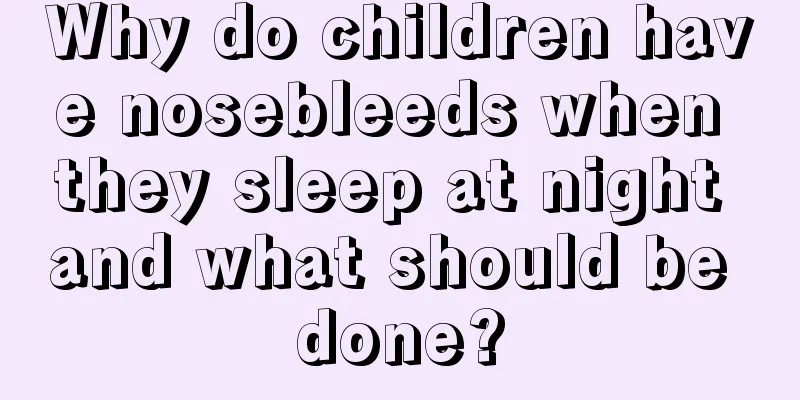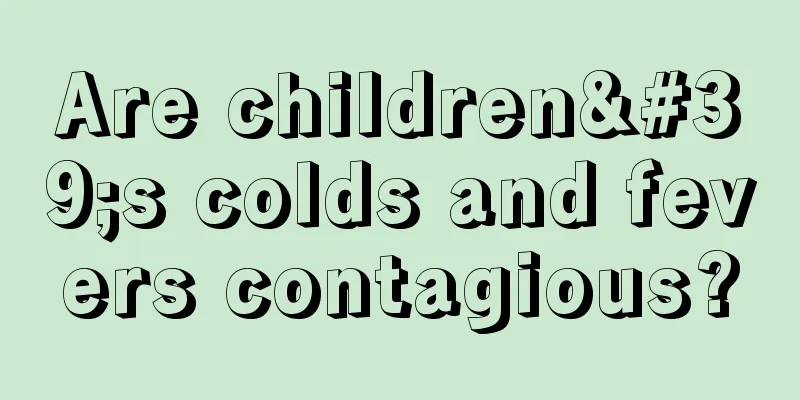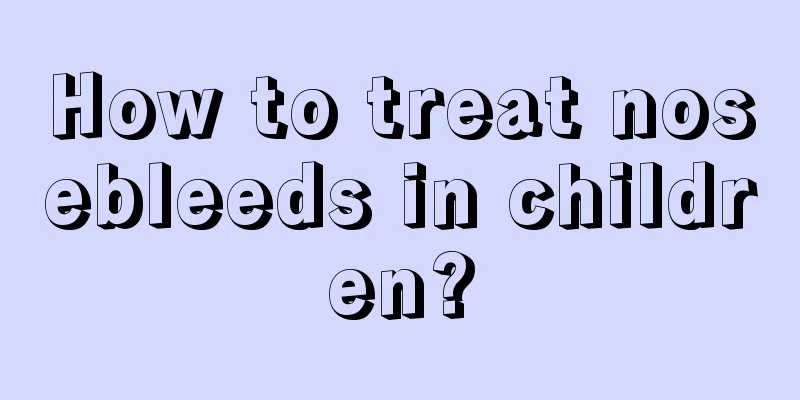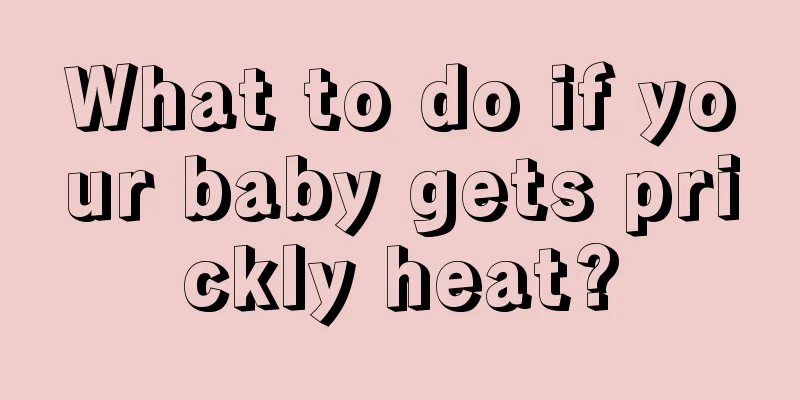What are the consequences of a baby's head fontanelle being hit?

|
The bodies of infants and young children are very fragile, so they need careful care from their parents, otherwise many accidents are likely to happen. Some mothers are careless and let the fontanelle on the top of the baby's head be hit. The fontanelle on the top of the baby's head is very fragile. If it is not handled properly, very serious things are likely to happen. So what are the consequences of the fontanelle on the top of the baby's head being hit? First, what are the consequences of a baby's fontanelle being hit? The baby may easily experience mild vomiting and fever symptoms. At this time, the child should be sent to the hospital immediately. Only after examination by the doctor can the detailed situation be understood. Some babies may suffer from increased intracranial pressure due to hitting the fontanelle. If the baby is sent to the hospital in time, the condition can be stabilized. Otherwise, it may cause serious consequences such as affecting the baby's brain development. Second, when babies are just born, we gently touch their little heads and find that the top and back of their heads are soft, and we can even feel the blood vessels beating slightly with the heart. This is actually a gap formed because the baby's skull is not fully developed and not connected. There are two largest gaps, one at the back of the baby's head, and the other at the top of the baby's head, which is commonly known as the "skylight" or "fontanelle." The fontanelle is a window that reflects the baby's brain development and physical health. The closing time and shape of the fontanelle are regular. Third, the fontanelle behind the brain usually closes about 2 months after the baby is born, and the fontanelle on the top of the head usually closes within 2 years of age. If the fontanelle on the top of the head closes before 6 months of age, the child may have microcephaly or brain hypoplasia. Although the fontanelle on the top of the head usually closes within two years at the latest, if the fontanelle has not closed at 18 months old, it is considered very late and you should pay close attention to it, as the child may have hydrocephalus, rickets or cretinism. Bulging fontanelle: The fontanelle is usually flat. If the fontanelle suddenly bulges and feels tight to the touch, and the baby has symptoms such as crying, vomiting, and fever, it is very likely that the baby has meningitis, which has caused increased intracranial pressure, and medical attention should be sought immediately; taking an overdose of vitamin A may cause the baby's fontanelle to bulge, so just stop taking vitamin A; in addition, if there is fluid accumulation under the baby's meninges or if the baby is given epinephrine for some reason, the baby's fontanelle may bulge. Sunken fontanelle: A sunken fontanelle in a baby is generally caused by dehydration or malnutrition. The child should drink more water or eat some fruits to replenish water. Mothers should also eat more nutritious foods and take good care of themselves. What are the consequences of hitting the fontanelle on the top of a baby's head? There is no skull at the location of the fontanelle, only a layer of dura mater, and under the dura mater is the cerebral fluid and brain. Therefore, it must not be hit or stabbed, otherwise it may cause intracranial hypertension and inflammation at the very least, or even life-threatening. |
<<: What to do if your child has diarrhea
>>: Causes of continuous nosebleeds in children
Recommend
Symptoms of intestinal mucosal shedding in babies
The health of the intestine is very easily affect...
What are the symptoms of physiological fever in babies?
The baby's body develops very quickly, and it...
Is it harmful for children to always be constipated?
Constipation is more common among children, but m...
Psychological education for children between 0 and 7 years old
Children's education is a very important cour...
What to do and how to treat eczema in a two-month-old baby
Every mother is particularly concerned about our ...
Why does the baby always retching?
Many parents are very worried because their babie...
The baby is more than three months old and keeps moaning
Parents love their children very much, especially...
One year old baby has bad breath
It is also common for children to have bad breath...
Symptoms of hypertonia in premature infants
High muscle tone is a common symptom in newborns,...
How to better treat ADHD in children?
Attention Deficit Hyperactivity Disorder (ADHD) i...
What are the symptoms of osteomyelitis in children?
We all know that in life some diseases are more c...
What to do if your baby gets a fever from using air conditioning
In the hot summer, everyone will choose to stay i...
Why do children have frequent fevers?
If a person's body temperature is higher than...
Baby's saliva is foamy
The presence of foam in the baby's saliva is ...
What are the symptoms of intestinal obstruction in infants and young children?
Intestinal obstruction is caused by obstruction o...









